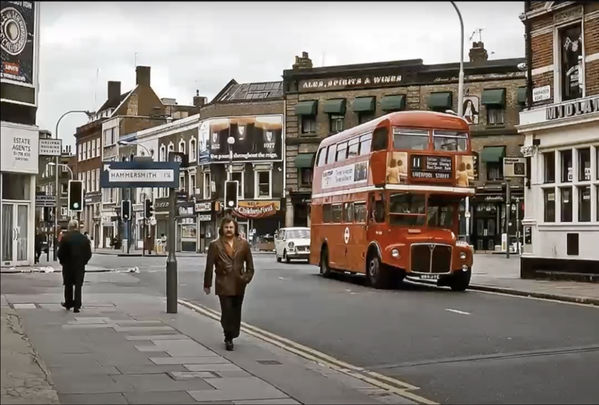Irish musician and songwriter Eugene Cunningham recently composed a wonderful song "The Unseen Irishman."
His own lyrics, sung by himself, are so poignant and have touched so many already:
Read more
Cunningham granted me an interview about his inspiration and his personal interaction with the Irish in London over the years.
Here below is what he told me and what I am honored to relate:
"I come from a small village called Belcoo in County Fermanagh, Northern Ireland. All my life I have played lead guitar in various Irish country bands and traveled extensively as a result.
"One of our regular destinations was London where on many occasions I enjoyed walking around the city and speaking to Irish emigrants I would see in little cafes in areas well associated with Irish people.
"Quite often you would see an old man on his own eating and drinking tea in total silence and seemly oblivious to people around. I have on occasions felt sad for those men and approached them to make conversation. Their immediate reaction would often be one of reluctance to engage in conversation and obvious suspicion of my intent. However, when realizing I was just over from Ireland playing music with a popular and well-known band their faces and eyes would light up as they eagerly began to ask questions about places at home and the music and dancing.
"Do you play in such and such a place - what’s it like there now? A million questions would fly suddenly. It was as if they had been plugged into the world again.
"For twenty minutes, they had a name, a place, a human identity. They were alive and part of the old country again. Inevitably, I would have to leave them. On occasions, I saw a tear in their eyes because on leaving it felt like I was pulling the plug again on a brief time tunnel that had erased their anonymity in a city that does not need them anymore.
"I knew when I had left, it was back to silent solitude again and often thought perhaps it would have been kinder not to have broken temporarily into their silent world only to leave and thus amplifying their sense of loneliness. Perhaps it was like giving a hungry man a plate of food and taking it away just as he was starting to enjoy the loss of emptiness.
"Many years later, I began to write songs and have had quite a bit of success with some of Ireland’s leading singers recording my work. One day I thought back on those old Irish men I used to see in the London cafes. I remembered their stories and wondered where they are now especially as that generation of Irish emigrants has now all but gone. Many who are left now just shuffle from a little bedsit to a cafe for a bit of warmth and a solitary cup of tea - 'The Unseen Irishman.'"
Cunningham's wonderful song reminded me of "The Forgotten Irish", a two-part documentary series produced by Animo. It documents the Irish generation who emigrated to England after the war, telling very honest, and at times harrowing, stories about the way their lives unfolded.
Thinking about those Irish men and women who were forced to emigrate to the UK during the economic stagnation of the 1950s is a downcast story. Many of the men were involved in building the motorways and rebuilding war-torn cities around England, while many women worked in domestic service or healthcare.
Despite the enormous contributions these emigrants made, both to the UK and to Ireland by sending money back home to their families, many of these elderly emigrants are now living lives of poverty and loneliness.
The Irish Centre in London does wonderful work. Ciarán Cannon, Irish Minister of State for the Diaspora and International Development, complemented the artists and everyone who took part in last June's "London Irish Centre's Charity Night In”, which raised funds for The Irish Centre in London. He said they had worked together in the spirit of the ‘meitheal’. They surpassed their £100k expectations as Irish people in the UK and around the world generously donated.
This is just one example of their work and fundraising which provides comfort to many of the forgotten and unseen Irish men and women in London. Those who gave so much, but received so little in return...
This article was submitted to the IrishCentral contributors network by a member of the global Irish community. To become an IrishCentral contributor click here.




Comments